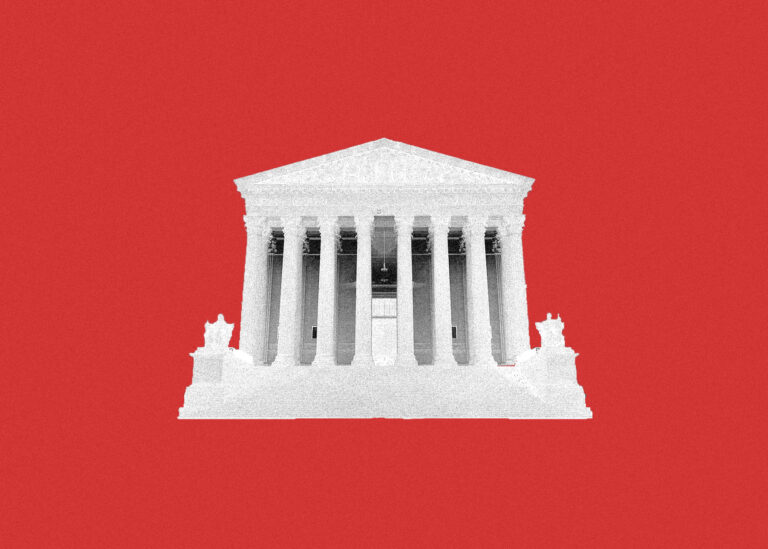At the end of February, the Supreme Court granted cert. in New Prime, Inc. v. Oliveira. In so doing, the Court added to the list of cases that examine how and to what extent the Federal Arbitration Act (FAA) applies in the employment context (see our coverage of Epic Systems).
The FAA
The FAA makes arbitration agreements in contracts “evidencing a transaction involving commerce … valid, irrevocable, and enforceable, save upon such grounds as exist at law or in equity.” § 2. In furtherance of this policy, § 4 of the FAA authorizes district courts to grant motions to compel arbitration. The FAA’s saving clause exempts from the statute “contracts of employment of seamen, railroad employees, or any other class of workers engaged in foreign or interstate commerce.” § 1. In Circuit City v. Adams, 532 U.S. 105 (2001), the Supreme Court interpreted § 1 to exempt “contracts of employment of transportation workers” from the FAA.
The Facts
New Prime (“Prime”) operates an interstate trucking company. To recruit and train new drivers, Prime runs an apprenticeship program. Prime waives tuition for program participants who drive for Prime for one year either as company drivers or as independent contractors. Prime gives a $100 bonus to those who select independent contractor status.
Dominic Oliveira successfully completed Prime’s apprenticeship program, at which point Prime representatives told him that he would make more money as an independent contractor than he would as a company driver. Prime directed Oliveira to an accounting company on the second floor of Prime’s building to help him form an LLC, and then to a truck leasing company on the first floor of the same building.
Oliveira signed an Independent Contractor Operating Agreement between Prime and his LLC. The agreement specified that Oliveira was an independent contractor. Under the contract, Oliveira retained various rights, including the right to provide transportation services to companies besides Prime, to refuse to haul any load offered by Prime, and to determine his own delivery routes and driving times. The agreement also made Oliveira responsible for paying all the operating and maintenance expenses of the truck. Finally, the agreement contained an arbitration clause—the parties agreed to arbitrate “any disputes arising under, arising out of or relating to [the contract], … including the arbitrability of disputes between the parties.”
Over time, Oliveira’s working relationship with Prime became fractious. Oliveira alleged that Prime’s “pervasive involvement” in his trucking operation rendered him unable to work for any other companies. He filed a class action against Prime in district court, claiming, among other things, that Prime had paid drivers below minimum wage in violation of the Fair Labor Standards Act (FLSA).
The Issues/The Decision Below
The district court denied Prime’s motion to compel arbitration without prejudice. The court made two moves in reaching its conclusion. First, it ruled that it is for the court, and not an arbitrator, to decide if the FAA’s saving clause (§ 1) applies to a particular agreement (i.e. exempts that agreement from the FAA’s enforcement mandate). Second, the court found that it needed discovery to determine if Oliveira was Prime’s employee or an independent contractor because § 1 does not apply to independent contractors. Prime appealed. Though SCOTUS granted cert. on both issues, this post focuses only on the second.
The First Circuit’s Decision
The First Circuit held that transportation-worker agreements with independent contractors are exempt from the FAA by its saving clause. The court started by putting two issues to the side. First, the court explained that because Prime had not disputed that Oliveira was a “transportation worker” below, it would not entertain Prime’s attempt to distinguish truck drivers from rail workers and seamen. Second, the court noted that because Prime had argued below that Oliveira and his LLC were “factually one and the same,” it need not decide if an LLC (or other corporate entity) can itself constitute a “transportation worker” or “worker” within the meaning of § 1.
Next, the court emphasized that it resolved this issue of first impression through statutory interpretation. To discern the ordinary meaning of the phrase, “contracts of employment” in § 1, the court surveyed various dictionaries, treatises, cases, and law review articles from the time period during which the FAA was enacted. These sources indicated that the phrase “contracts of employment” was routinely used to describe contracts with independent contractors. The court also cited Circuit City for the proposition that Congress, when it made the FAA exemption, was concerned with the “necessary role” of transportation workers to the “free flow of goods.” Truck drivers who independently contract with trucking and shipping companies play the same, “necessary role” in the transportation of goods as their employed counterparts.
The court also addressed the other courts that have passed on the issue. Many of those courts, the First Circuit highlighted, have “simply assumed” without independent analysis that independent contractor agreements are not “contracts of employment.” In response to those courts that have deployed independent analysis in reading § 1 as inapplicable to independent contractor agreements, the First Circuit rejected both of the oft-proffered rationales. First, the court was unpersuaded that the federal policy favoring arbitration answered the question—the policy could not override the statute’s plain text. As for the argument invoking the Supreme Court’s call to give § 1 a “narrow construction,” Circuit City, 532 U.S. at 118, the First Circuit emphasized context—Circuit City was rejecting an argument in favor of a broad interpretation that was in conflict with the statute’s text.
Finally, the court repudiated the dissent’s approach, which counseled that the court should have remanded for determination of Oliveira’s employment status. If the district court found that Oliveira was Prime’s employee, the legal question of whether or not § 1 applies to independent contractors would become moot. The dissent touted this as the prudent course because of how early in the litigation this “challenging question of statutory interpretation” had reached the court. In the majority’s view, this was not “a viable option,” because the lower court ordered discovery on the express grounds that § 1 does not apply to independent contractors. If that conclusion was incorrect, then discovery would be unnecessary.
Takeaways
The American Trucking Associations, Inc. and the Chamber of Commerce of the United States filed amicus curiae in support of New Prime’s petition for a writ of certiorari. Each emphasized the central role that independent contractors play in the modern economy, and the trucking industry in particular. The amici also invoked the federal policy favoring arbitration argument that the First Circuit rejected as insufficient to sustain Prime’s position.
It is too early to proffer more than conjecture regarding how the Supreme Court will decide the case. To the extent the Justices’ leanings in Epic Systems are probative of the positions each will take in this case, there is little yet to go on. Many think that Epic Systems will fall along partisan lines, and Justice Gorsuch’s silence during oral argument made it difficult to ground more precise predictions.
The consequences of the ruling will be significant either way—there are hundreds of thousands of truck drivers currently bound by arbitration agreements.









Daily News & Commentary
Start your day with our roundup of the latest labor developments. See all
July 15
The Department of Labor announces new guidance around Occupational Safety and Health Administration penalty and debt collection procedures; a Cornell University graduate student challenges graduate student employee-status under the National Labor Relations Act; the Supreme Court clears the way for the Trump administration to move forward with a significant staff reduction at the Department of Education.
July 14
More circuits weigh in on two-step certification; Uber challengers Seattle deactivation ordinance.
July 13
APWU and USPS ratify a new contract, ICE barred from racial profiling in Los Angeles, and the fight continues over the dismantling of NIOSH
July 11
Regional director orders election without Board quorum; 9th Circuit pauses injunction on Executive Order; Driverless car legislation in Massachusetts
July 10
Wisconsin Supreme Court holds UW Health nurses are not covered by Wisconsin’s Labor Peace Act; a district judge denies the request to stay an injunction pending appeal; the NFLPA appeals an arbitration decision.
July 9
the Supreme Court allows Trump to proceed with mass firings; Secretary of Agriculture suggests Medicaid recipients replace deported migrant farmworkers; DHS ends TPS for Nicaragua and Honduras